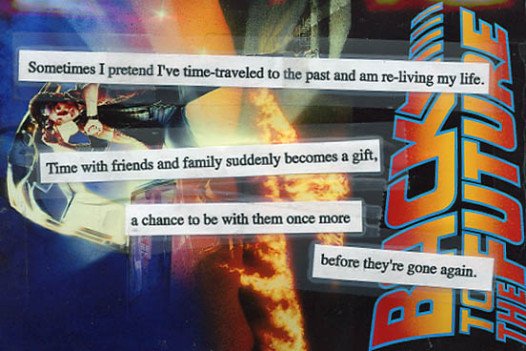What purpose can you find in life right now? What purpose can you fulfill in your church body? Where can you get plugged in? What ministry can you make an impact in? How can you serve and love the people in your life today? What is life asking of you? A young adult ministry can help 20somethings discover a meaningful “why” in the here and now.
HONESTY
Every relationship you have in your 20s is in desperate need of honesty if it’s going to be healthy. You need to learn to be honest in your relationship with yourself, with God, your parents, your friends, and the person you’re dating.
The apostle Paul uses the metaphor of a race to describe our life as a Christian. We’re to run the race well (1 Cor. 9:24-27). Imagine starting a marathon right after getting a splinter in the bottom of your foot. At first it might not hurt that bad. It stings a little but you can keep going. I’m sure after the third mile (this is speculation because I’ve never ran more than three miles in my life and I’m sure I’d explode if I tired) that pain from the splinter is going to be a lot worse. By mile ten I bet it’s insane how much it hurts. At the start it didn’t seem like that big of a deal but as the race continues it’ll affect you more and more.
One time I was invited to speak to college students about my experience in ministry and this was what I talked about. The morale of the story is DEAL WITH THE SPLINTER NOW. At the start of the race. It might not feel that bad but if you don’t address it, it’ll get so much worse. This is true for jealousy, anger, porn addiction, unforgiveness, insecurities, infidelity, abusive behavior, or mental health issues. And you can’t deal with the splinter unless you’re willing to admit that it’s there.
Honesty can be terrifying.
A young adult ministry can encourage and challenge you to bravely pursue honesty in relationships, as well as give you a safe place to practice and learn.
GROWTH
In your 20s you’re transitioning out of a life where you’ve been told by a teacher what you’ll learn, read, research, memorize, and practice. That’s all you’ve known up until this point and now you’re free to decide those things for yourself. What are you going to do?
Matt Chandler used to call immature men “boys who can shave.” The danger in this transition is that while the rest of your life is changing around you, emotionally and spiritually you can stay who you were as senior in high school.
I believe a young adult ministry needs to emphasize the importance of growth. Growth in knowledge, maturity, talents, passion, and especially growth in your relationship with God. It can help create a culture that celebrates reading, questioning, and reflecting on your life. Honesty will help you recognize your need for growth but you also have to actually set out to do it.
Every day you take a step in the right direction is a day worth celebrating.
FRIENDSHIP
Earlier this year I put out a survey to young adult pastors with just one question: What’s the most difficult part of your ministry?" The number one answer by far was: “Young adults are flakes.”
I can see how that would be the most frustrating thing in the world. You plan an event, people commit to being there, and a couple days (or even hours) before it’s supposed to happen, people start DROPPING LIKE FLIES. A bunch of people said “I’ll totally be there! That sounds awesome!” but then only a few actually come out.
That really sucks.
But I think it also proves why a young adult ministry is so important. Yes, they’re flakes, but they’re not just doing that to the church, they’re doing that to everybody. They’re flaking on each other too. Could you imagine if everybody in your life was that unreliable? A young adult ministry can make such a huge impact by being the only consistent voice in someone’s life.
There is a loneliness epidemic in our culture and during this transitional period in your 20s it’s so important to step into the rest of your life with the knowledge of what a real friendship looks like and how to have one. It’s so much easier to strive for purpose, honesty, and growth when surrounded by friends.
CONCLUSION
When you focus on equipping young adults for their transitional season, I think your less likely to run into the problem of building a ministry that isolates 20somethings from the rest of the church. Eventually they’ll be on the other side of their big transition. You’re giving them everything they need to outgrow your ministry and realize “oh I don’t need this anymore.” That’s the goal.





